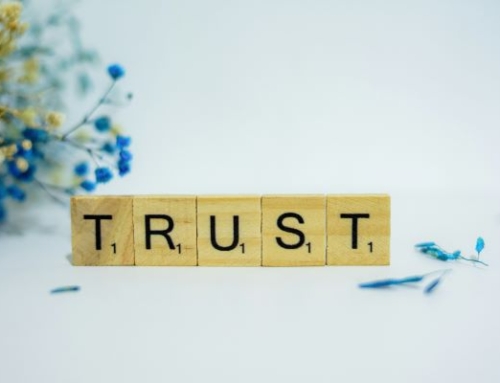Guilt: Fight the Feeling

Photo by Tingey Injury Law Firm on Unsplash
Written by Myra King-Kerge
We all deal with so many different emotions on a daily basis. Some feel great, some help us–and some can do more harm than good. Those are the ones that are the hardest to work through. Perhaps one of the trickiest is guilt.
Guilt often becomes a defining factor in how we view ourselves. It can become your identity. You shouldn’t want that. You shouldn’t have done that. You are a bad person. These are guilt-based thoughts that can tear you up inside, leading to self-hatred, reactive behaviors, and, in turn, more guilt.
One of the more common times guilt sneaks in is when you begin to set boundaries or try to have your needs met. This is usually because you’ve been taught that you owe something to others, yet your needs somehow don’t matter or are bad.
It’s important to be able to pause and process the guilt you’re experiencing. Did you actually do something to hurt or hinder someone else for no good reason or out of malicious intent? In this case, guilt can be a good way to key you into considering your impact on others — not to make you feel bad and irredeemable, but to help you reflect or even to rectify a mistake, if necessary.
Too often, however, people never move past this stage, leaving one stuck repeating patterns of behavior that don’t tend to feel so great. It’s important for you to move beyond ruminating on your perceived badness and consider the idea that sometimes guilt is actually a sign that you are coming into your own emotionally. In other words, sometimes guilt can actually be a signal that you are doing something right!
Take the time to consider the difference. Reflect upon whether what you did was really “wrong” or if it simply feels wrong because it is so foreign and far from your typical pattern of behavior. Just because it feels wrong doesn’t mean it is.
By setting limitations or asking for what you need, you may be overcoming a fear of being “too needy”. Maybe you’re outgrowing your discomfort with being vulnerable. Your guilt may be a result of the fact that you’re moving away from all the things you learned would keep you feeling safe, included, or maybe even just being liked. Avoiding conflict, saying or doing what you think others will approve of, or people-pleasing are guilt-induced behaviors that create a myriad of problems in relationship and with yourself over time.
“Compassionate people ask for what they need. They say no when they need to, and when they say yes, they mean it. They’re compassionate because their boundaries keep them out of resentment.” ~Brene Brown
Expressing your needs often takes the form of setting some type of boundary—which does impact those around you. By asking for things and setting boundaries, it can feel like you’re putting someone out … which can lead to feelings of guilt. Believe it or not, expressing your needs in a direct and compassionate way, that of course also considers the impact on others, actually allows you to be more open to love and healthy relationships, with self and other.
There is a difference between setting boundaries and expressing needs versus criticizing or complaining. One is part of healthy interactions and compromise while the other rarely helps anyone. An example of sharing a need in a healthy way could be saying, “I’m really able to connect with you in a more meaningful way after work if I have ten or twenty minutes of quiet time when I first get home.” Instead of, “You really overwhelm me when you start talking about your day as soon as I walk in the door.” The former is a way to share needs in a very clear and caring way rather than highlight what you don’t like. It centers growth and connection rather than accusation. In other words, nothing to feel guilty about!
Having needs and sharing those needs is important to your mental health and well-being. Though as you begin to honor these more and more, guilt may continue to creep in. Often, it’s a way that your body tries to keep you safe—even if safe means falling into patterns of behavior that may not serve you.
To avoid becoming paralyzed by guilt you need to appreciate the importance of respecting your needs and boundaries. You also need to recognize that it should be important to those close in your life as well. Those around you may struggle with the adjustment in your behavior at first—new things are hard and scary for everyone. What is important in that moment is that you validate that struggle without falling back into feeling as though your change was somehow bad or wrong.
For sure, just because needs and feelings have been expressed doesn’t mean that you or anyone else must agree with them. It’s about compromise, understanding, and compassion. It’s possible to validate someone’s feelings without agreeing with them. For example, if a friend is upset because you said no to, say, doing a favor for them when you would have done it in the past—even if it was a strain on you—you can acknowledge their disappointment without backtracking. It may look something like saying, “I can understand that it’s frustrating that I can’t help you tomorrow, but, unfortunately I just can’t do it. Maybe this weekend when I have more free time I can help out for an hour or so.” In this, you are setting a boundary while also compromising and setting future limits as well. This looks very different from a response that focuses on just agreeing with someone and invalidating yourself, like: “Oh I’m sorry. I feel badly that you need help. I see this is really bothering you. Nevermind, I’ll help out tomorrow.”
Putting this into practice allows for grace for yourself. It’s a good reminder that we all deserve to have our needs met, but it is not the responsibility of everyone to meet all the needs of each other. And this includes you. In fact, it’s literally impossible to meet everyone’s needs! Fight the guilt by remembering this.









